Our roaster Ludwika just returned from Rwamatamu washing station in Rwanda. This is her second blog post about her trip.
By Ludwika Kopczynska
Week two in Rwamatamu gave me the most important lesson I learned while there. Life is not about where you are but about progress and people that are willing to join you in that journey.
As I mentioned in last week’s blog, when we returned to Rwamatamu on Monday morning, the cupping lab operation was already up and running. We cupped a lot throughout both weeks and part of that process was calibrating with each other to understand each other’s descriptions of what the coffees tasted like.
Coffee descriptions
The team at the washing station that I was working with used really different descriptors for the tastes they were finding in the coffee than we do in our cuppings back home. This is obviously because the references vary completely depending on peoples taste experiences. An example is they might describe coffee like "it tastes like an orange that fell from the tree 4 days ago or a green banana or a bruised banana or soap etc". You won’t find descriptors like apricot or pear as those things are not known flavours.

It would be easy to dismiss these different descriptions but if you actually listen to them it becomes easier and easier to translate what flavours people are describing and find out we are all tasting the same thing just calling it differently. Oranges that have fallen a few days earlier for example have a boozy sweetness compared to a fresh orange.
Calibrating and assessing quality
When asked to choose their favourite coffee, the team kept choosing "triage" (which is coffee that is mixture of defects and under/over ripe put together). At first I couldn’t understand why they were choosing this which was objectively the worst coffee lot as their favourite. But eventually I realised it is because that's the coffee which is kept back for the domestic market and so it is what they were used to drinking. So that specific flavour is what they associated with ‘coffee’. By week two we were calibrated and agreeing more on which were good coffees in a blind cupping.
Coffee Defects
One of the biggest areas of learning for me during the two weeks was in hand sorting for defects. It reminded me again that "speciality coffee" isn't what we often imagine it to be. I think we often imagine a whole crop that is all of better quality whereas in fact it is a mixed crop which is just carefully selected (by both machine, hands and in-between methods).

Coffee is sorted for the beans with the best size, shape, and density and these are kept separate for selling in the specialty market while the rest is coffee that gets sold as commodity.
Processing at the station
I was shown both the washing and natural processing at the station and thanks to my previous visits to Ethiopia and Burundi I was able to compare how the processing happened, ask constructive questions, brainstorm differences and effects they would have and hopefully contribute to progress.

I was shown their nursery and different varietals they grow at their own plantation to test them. This is different in Rwanda to Burundi where the government prohibits experimenting with new seeds. In Burundi, they can only cultivate one seed of one varietal provided by government.

Meeting old friends
Finally it is Wednesday and the long awaited visit from my old friends from Burundi. Dan, Pontien and Zephyrin travelled from Bujumbura to visit me while I was staying at the washing station. We met for dinner on Wednesday night and I was able to introduce them to Bernice and Luke.

I was incredibly moved that they had driven for hours to see me.
I was invited to stay with them over night in the lodge where they were staying by stunning lake Kivu. This gave me the chance for a morning sunrise swim in the lake and the most magical time catching up with Zephyrin in this heavenly place. We have stayed in regular contact over this past year so it feels like we only talked yesterday. Nevertheless it was great to talk about changes in coffee industry and its future but also our personal and professional developments over this past year.

On Thursday we all travelled to Rwamatamu and started our day with visit to a women's co-operative. They have a piece of land where they grow coffee that will be kept as separate lot.
Later in the day we discussed all the differences in approach to processing, grading and storing parchment in the two washing stations. Because of my language barrier I could really only observe and wait for Elisé to translate a quite heated knowledge exchange. Later we had an amazing lunch together where we shared important conversations about different aspects of the coffee industry from our different perspectives. Then we cupped some coffees the guys had brought from Migoti together. The change in their coffees since last year is mind blowing! But then sadly I had to say goodbye to my friends who headed back to Burundi.
My last day
The next morning it was finally time for our final cupping together at Rwamatamu. We had put together some designed lots, and the test samples were tasting amazing. It felt like we actually achieved that goal I thought was impossible. We were also able to differentiate between the lots on the blind cupping. So much progress in two weeks for this new cupping lab team!

We drove back to Kigali to say goodbye to Bernice's parents and her brother Papi. I got an open invitation to come back any time not just for work, beautiful presents and personal letters where they refer to me as their 3rd daughter.

